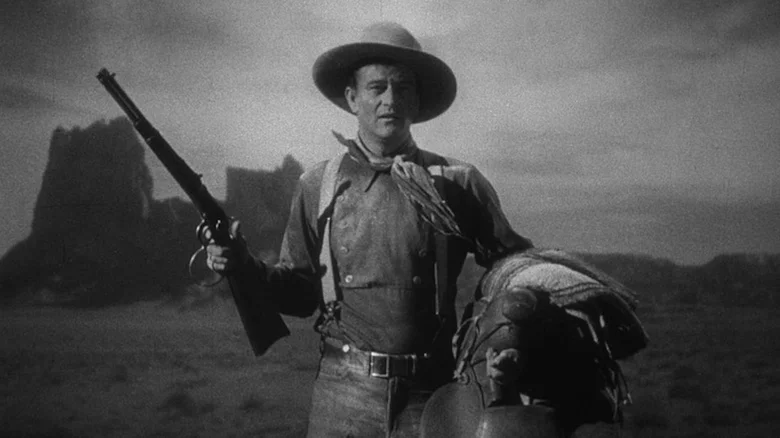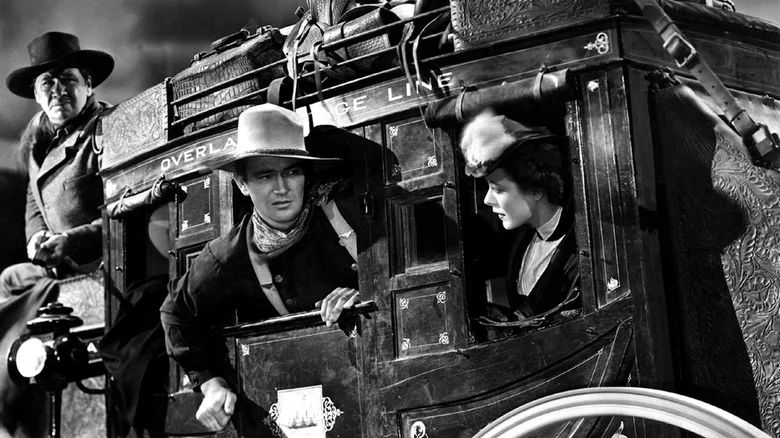John Ford did enjoy his petty tortures, especially when his subject was John Wayne. Ford had certainly earned the right to rib the star a little. He employed Wayne as a prop man as a favor to USC coach Howard Jones and silent Western star Tom Mix, and vouched for the actor when Raoul Walsh considered casting him for his 1930 epic “The Big Trail.” He might not have coined the name “John Wayne” (that was Walsh), but he did more to shape his swaggering persona than any other director in Hollywood.
But Ford’s needling could verge on cruelty. When an insecure Wayne, playing a Swedish seaman in 1940’s “The Long Voyage Home,” asked Ford for a dialect coach to help him nail the accent, the director retorted “Well, Jesus, all right, if you want to be a goddamn actor.” In 1948, after viewing Howard Hawks’ “Red River,” Ford quipped, “I never knew that big son of a b**** could act.”
If his goal was to keep the up-and-coming performer on his toes, it worked. And there’s no better example of Ford blindsiding the Duke than when he cast him as the Ringo Kid in “Stagecoach.”
The boat trip that changed The Duke’s life

By the end of the 1930s, Wayne had firmly established himself as a capable lead of Poverty Row Westerns at Republic Pictures. Critics turned up their noses at these movies, but moviegoers were enthralled by the white hat/black hat formula. Shootouts, fistfights, and a smattering of romance: you always got what you paid for.
Wayne, however, had his pride, and being in such close proximity to legitimately great artists like Ford and Walsh left him yearning for respectability. Alas, his pride precluded him from begging Ford for a part. The director knew this, and, according to Randy Roberts and David Welky’s “John Wayne: Treasures,” spent the better part of a late-’30s sailing trip with the actor asking him who should play the Ringo Kid in “Stagecoach.”
Wayne suggested Lloyd Nolan, a contemporary who’d earned acclaim playing the black hat in King Vidor’s “The Texas Rangers.” Ford ridiculed the notion. Per Roberts and Welky:
“Nolan?” Ford reacted, dismissing the suggestion. “Jesus Christ, I just wish to hell I could find some young actor in this town who can ride a horse and act. Duke, you must know someone. But then you’ve been out at Republic. You’re not likely to see a hell of a lot of talent out there.”
Ford kept after Wayne until he docked his yacht in San Pedro. That’s when he lowered the boom. “Duke,” he said. “I want to tell you something. I have made up my mind. I want you to play the Ringo Kid.”
Wayne likened Ford’s decision to getting “hit in the belly with a baseball bat.” After years of high-handed mentorship, the director was finally giving the Duke his sink-or-swim opportunity in an A-movie. Wayne more than delivered. “Stagecoach” made the pulpy genre respectable, and announced the Duke as a hard man with a just-soft-enough center. Ford’s approach to nurturing might’ve been unorthodox, and kind of mean, but you can’t argue with the results.
